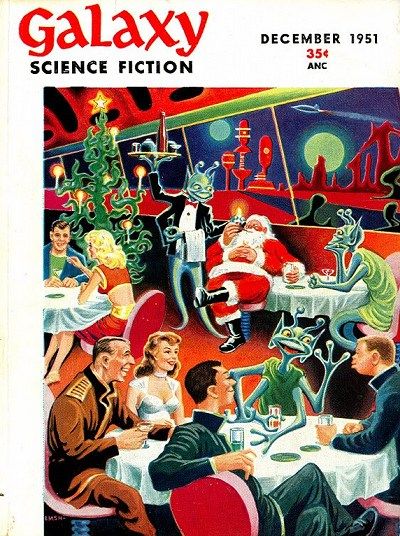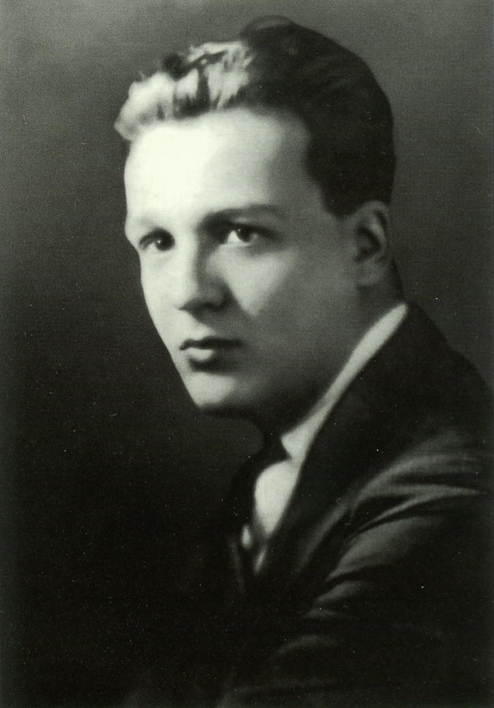Originally written for the weird story collection, Over the Edge, published in 1964 and edited by August Derleth for the famous specialty small press, Arkham Press, this twenty-eight-page novelette shows Fritz Leiber at the peak of his mature writing powers in the High Sixties. It is a contemporary dark science-fantasy so prescient as to make it particularly creepy in this present era in which we live, where our addiction to fossil fuels now pounds the drumbeat of doom daily in our ears as climate change encroaches more and more deeply into our lives. Here we encounter the one-two-punch double mastery of Leiber, who wielded comfortably the thought patterns of both science fiction and weird fiction, in this story hypnotically, eerily (and inextricably) interconnected to its premise, unfolding mystery, ramifications and implications.
But is more than that. It is the human psyche: where does its incredible and incomparable power of deduction end and its seduction and potential fallibility in the realm of imagination and schizophrenia begin? How does a sympathetic person who knows the world is not all that it seems help and understand a friend, whose rare form of intelligence and perspicacity alienate him from the world of appearances. In this story, one main character, the first person voice of the narrative, must constantly reconsider his assessments of his troubled friend: is he mad? is he in danger? does he speak truth? does he merely describe hallucinations and unfounded suspicions, which will nevertheless drive him to self-destruction? The other main character is a man most might write off as an eccentric slum-tenant of the ecological ghetto of Venice, California. His morbid obsession with modern humankind's mono-minded reliance upon petroleum has led him to believe in the parallel existence of an evil sentience with a cosmic agenda. Here is a tale set in the dregs of America's now faded oil boom.
Here is a story that posits a collective intelligence of a non-biological kind inherent in a substance that effectively controls the fate of humankind as much at the time in which the story was written as it does now. The numinous power of oil has taken hold of the minds of men far more insidiously than the venerable madness for gold. It had waited, biding its time for our technology to properly harness it, while occasionally surged to the surface and caught mysterious fire in the oily swamps of Antiquity. Here a person finally perceives its pernicious, insidious influence, and the source of that power begins to understand that it is being consciously perceived. It is a story of the discoverer becoming the hunted by that which he has laid bare in the disturbed light of his unusual mind. In between the two entities is a sympathetic person who still clings to the world to which we the readers belong, but who increasingly finds himself persuaded by the underlying reality fitfully described by his troubled friend. The man in between must decide how he is to save his friend and from what. Is it merely his friend's mental health that is at stake or his very life? Is the threat a figment of his mind inspired by the polluted environment in which he lives, or is it something wholly exterior, intangible to the established theories of science and psychology, but no less real and threatening for all that?
Oh, yes, like so much else by Leiber, this is a tale of mystery, as much as a story of increasing horror and weirdness. It is also a conversation where science itself is challenged for its assumptions in more than a fanciful way. Here is philosophical insight we can take away with us and mull over with fascination and inner turmoil. But the imminent shape of menace itself in this story -- the so-called, Black Gondolier -- we are left to wonder about: is it a physical manifestation of a powerful psychological projection, like a Buddhist tulpa, or is it a specifically purposeful animation of a seemingly inanimate constituent, responding articulately (and in a symbolically and anciently appropriate form) to the threat of discovery by a sapient human consciousness? Please find this story in the recent anthology of short weird fiction, The Black Gondolier, by Fritz Leiber; edited by John Pelan and Steve Savile; published by E-Reads Publications, New York, NY; copyright 2003.
Wednesday, January 4, 2012
Subscribe to:
Comments (Atom)


























